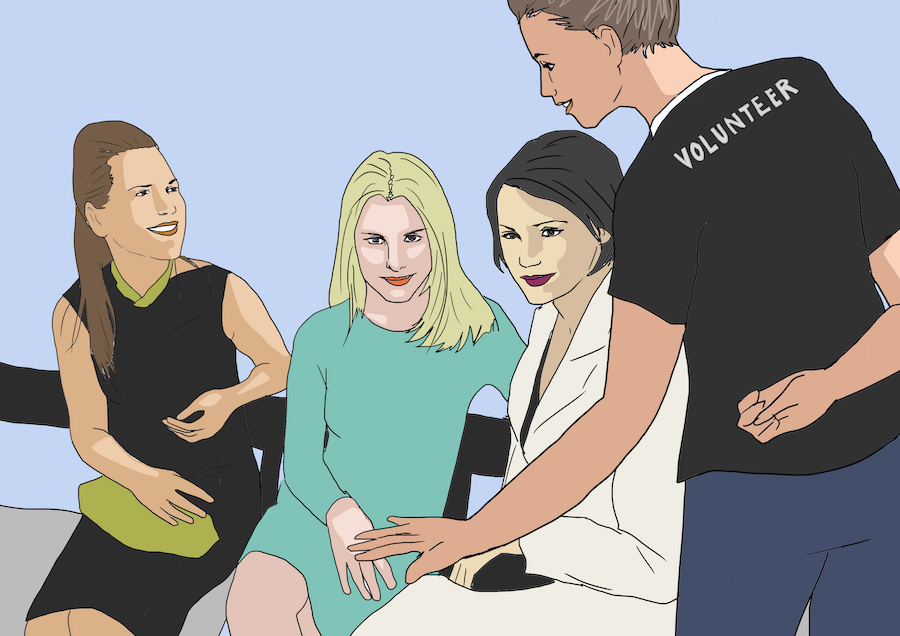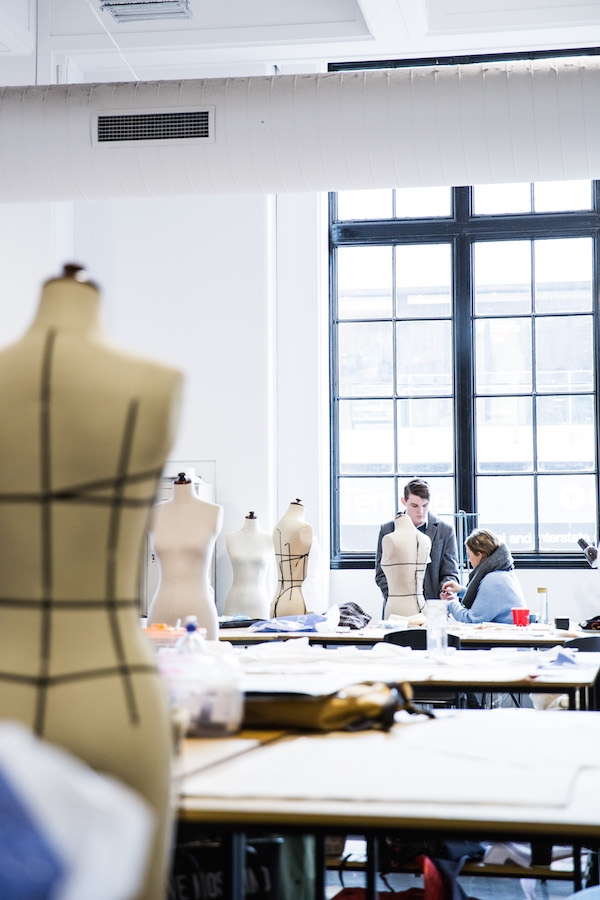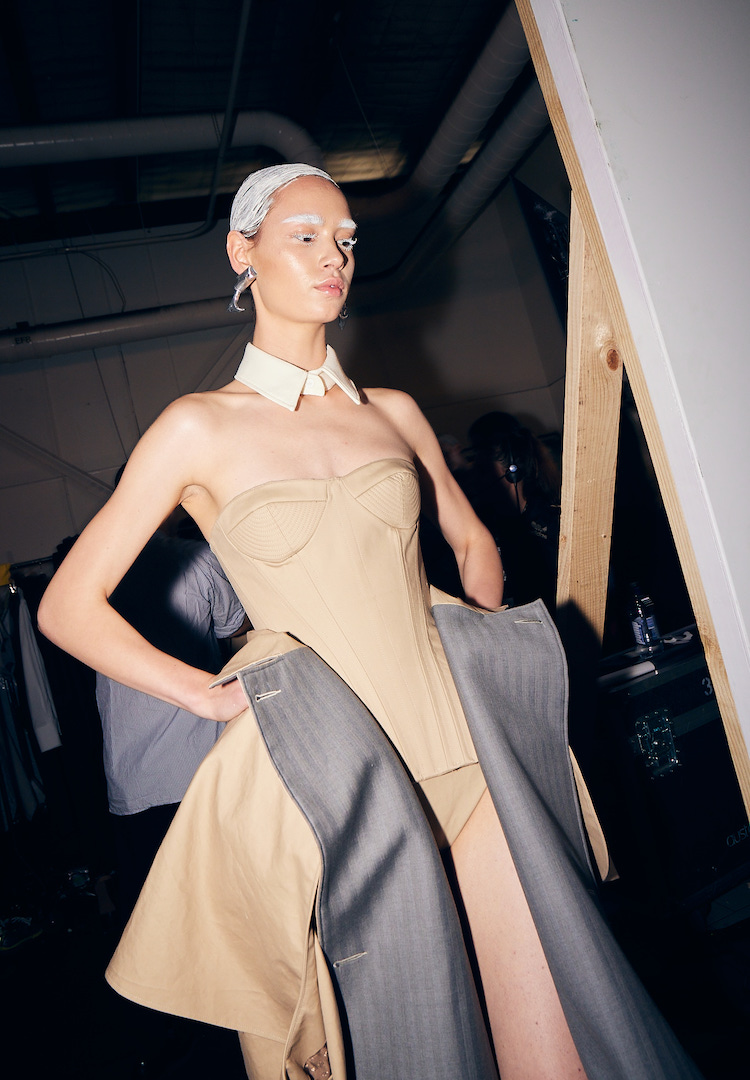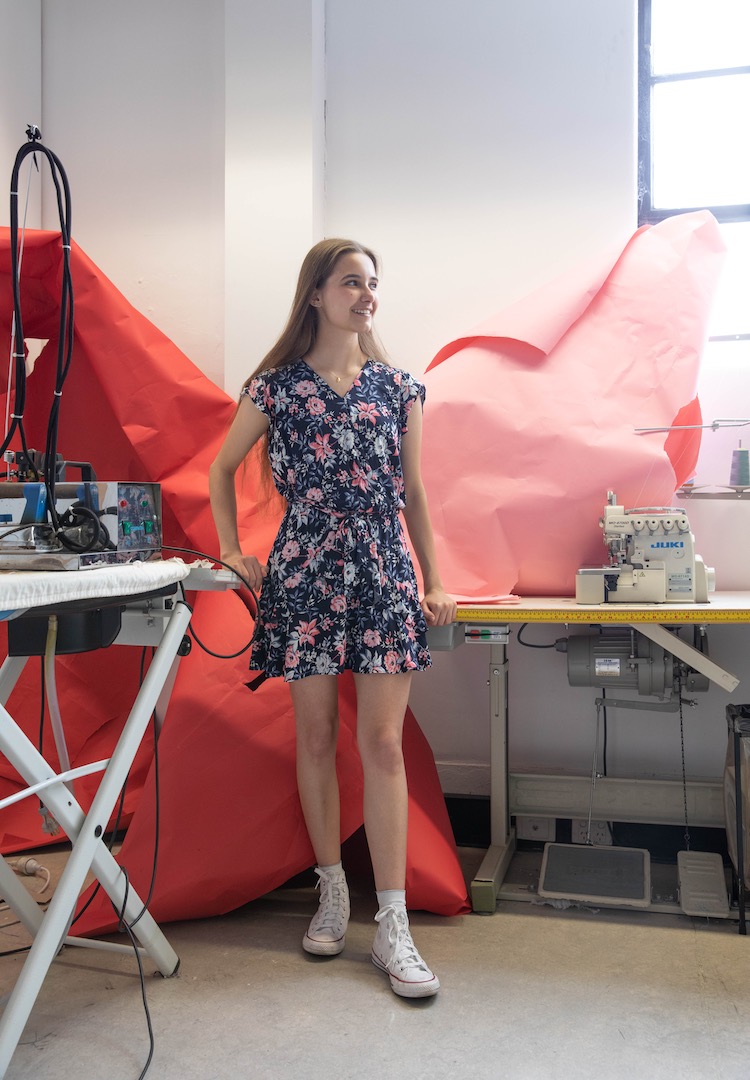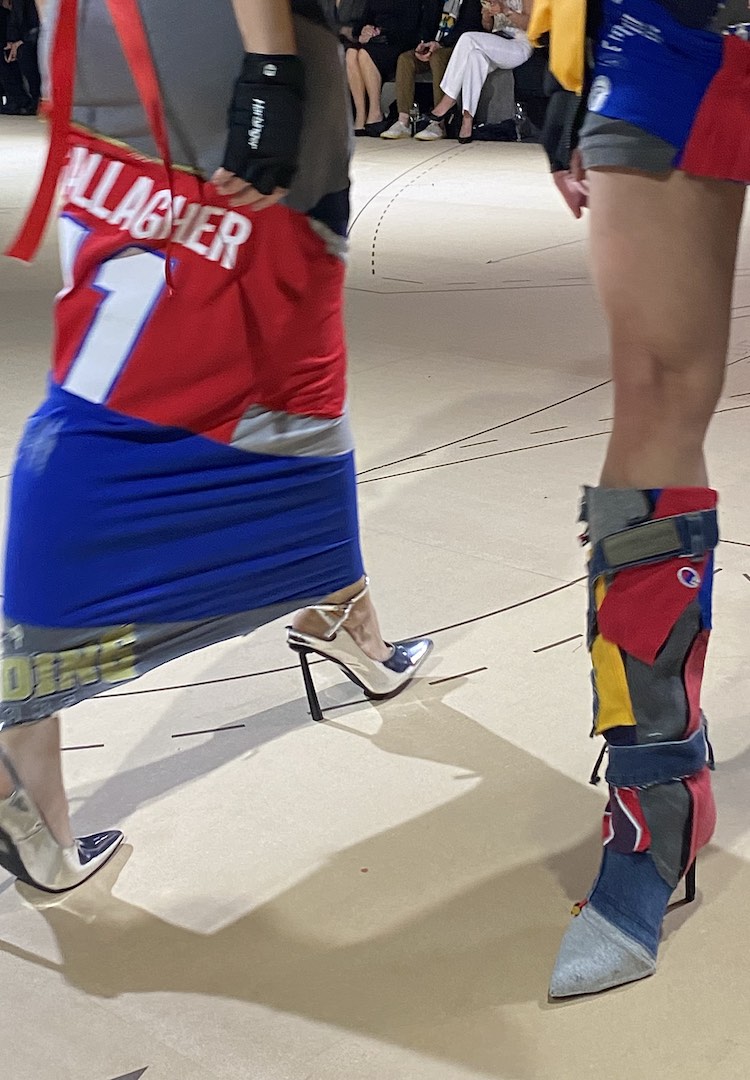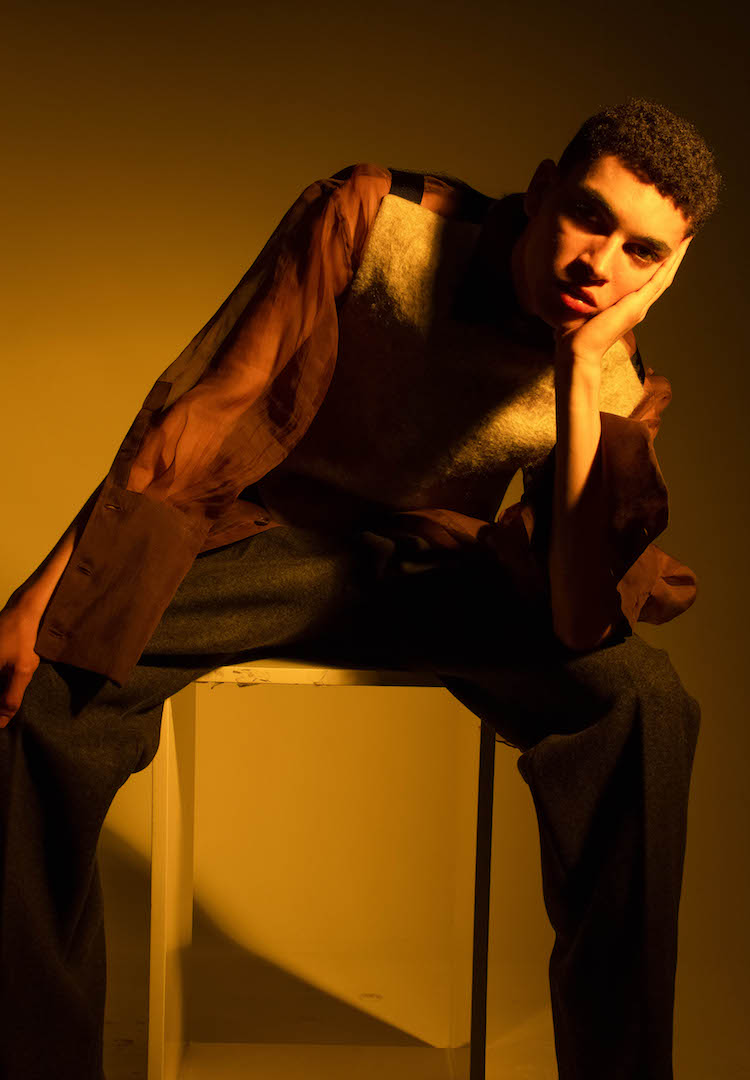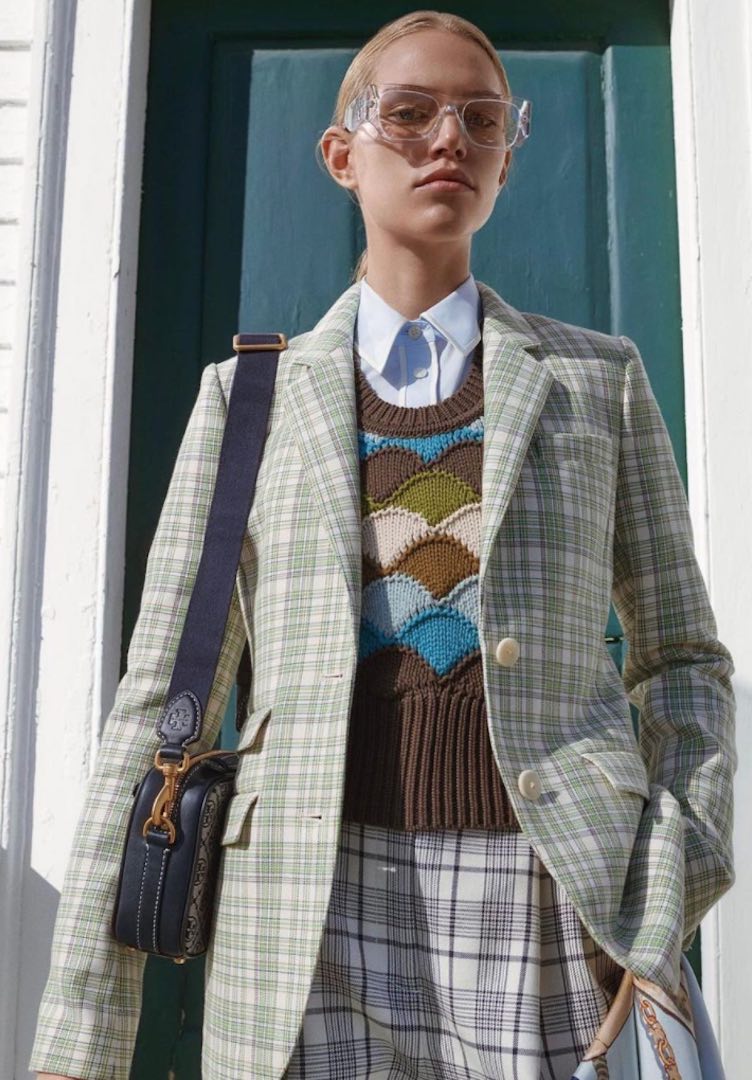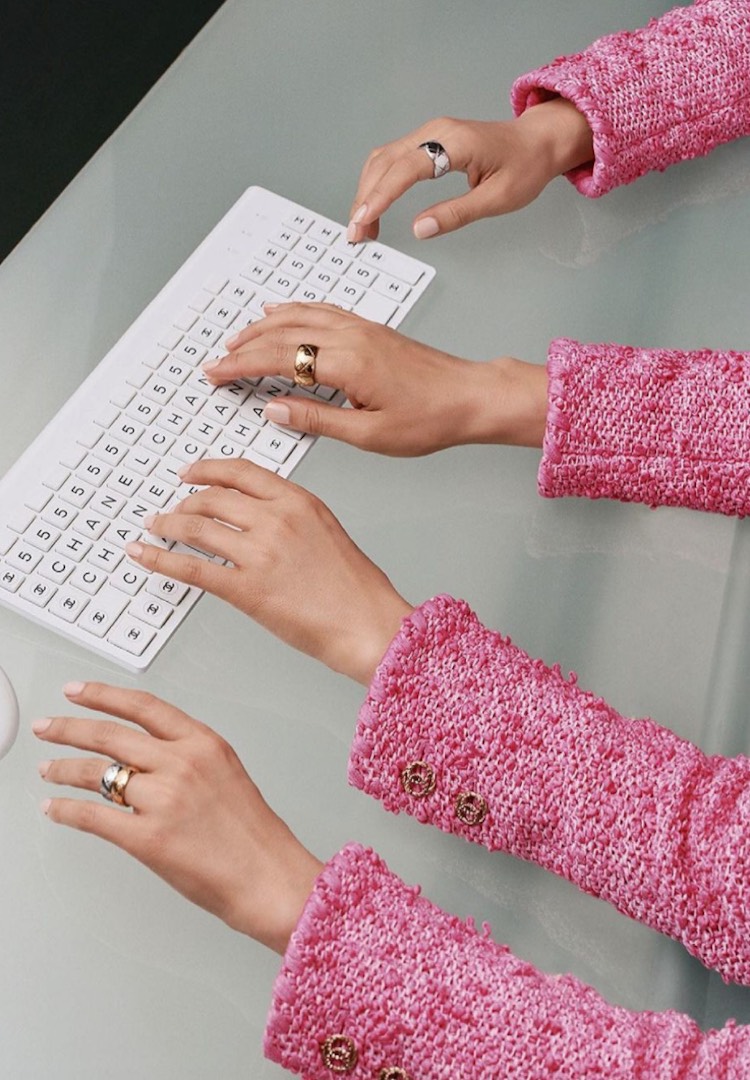What you actually learn at fashion school (and why it’s worth going)
Question: do you *need* to study fashion?
If you’ve clicked into this article, we’re guessing you’re a) finishing high school; b) looking into a new career path; c) not sold on your current uni course; or d) just interested in what the hell ‘fashion school’ actually entails.
It’s a question we get asked a lot: ‘do I actually need to study fashion?’
So we decided to shed some light. Not having studied fashion ourselves, we had a chat to Whitehouse Institute of Design graduate, Bonnie Hill. Bonnie caught our eye on Instagram with her clean, tailored aesthetic and beautifully structured designs.
She told us all the reasons why going to fashion school is worth it (hint: it’s not just the McQueen-worthy sewing skills).
It’s sewing, design, business and everything inbetween
Most fashion schools will go above teaching you how to use a needle and thread. Sure, you’ll become proficient in the necessities – design, patternmaking, sewing and twilling – but you can expect to earn a skill set that reaches far beyond just drawing or sewing.
Choosing the right course can also mean you come out with a Bachelor of Design, like Bonnie. It’s a degree that allows you to study on a broader level than just ‘designing clothes’ and means you can leave uni with skills in web development and design, styling and even filmmaking.
As Bonnie tells us, such learning opportunities can be invaluable for both personal and career growth.
“You’re learning different things all the time and you’re always improving. It means that all different doors open rather than just being able to work as a fashion designer,” says Bonnie.
You’ll find your signature
Thinking about starting your own label? If you haven’t honed your style, you risk your collections looking as varied as an op shop sales rack.
Many fashion schools encourage students to refine their aesthetic and ensure their is visible in their designs. According to Bonnie, a thesis is necessary, as it allows you to develop your personal aesthetic as a designer. Trust us when we say that nailing a fluid and consistent style is key to a successful brand.
But you’ll also learn to work to a brief
Working in fashion often means giving up creative control in favour of briefs set by market trends, target audiences and other factors (like deadlines). A design degree means you’ll be practising and refining the real-life skills you’ll need in the industry. You’ll learn to work to a timeline, take criticism and apply your creative ideas to a specific brief.
“Every year we had a design class in which we were given a brief that had to do with the trends that year,” says Bonnie. “We had to find a way to personalise our design while still keeping on trend, and working with specific colours and techniques.” It’s just like – dare we say it – in the real world.
You’ll learn to start a label
It’s all well and good to be a talented designer, but there’s no use stepping foot in the industry without the knowledge to get your designs into the hands of the public. Manufacturing, sourcing, staff management, taxes, warehouses – the list goes on when it comes to running a business, so it helps to have an understanding of how it all works.
“Fashion school enabled some students to implement their own businesses straight out of school,” says Bonnie. “It covers what you need to do once you enter the industry and teaches you to think about what you will do next.”
If you don’t plan on setting up shop, you’ll still need this knowledge when applying for design jobs in other companies. Fashion schools place importance on understanding the inner workings of both big and small fashion businesses (think your H&Ms versus your Kuwaiis), so you can leave ready to actually get a job out there.
It opens doors
One of the greatest incentives to head to fashion school is to gain access opportunities you otherwise wouldn’t be privy to. You’ll be surrounded by like-minded people (think of it as networking with future designers), and making connections with lecturers, teachers and industry professionals who are all ready and willing hook you up where they can.
You’re also waaaaay more likely to hear about industry ops, score yourself an internship and be able to enter prestigious competitions and showcasing opportunities.
“There was the option to involve yourself in competitions [such as the National Graduate Showcase], and as a result you could get really good internships. Teachers were more than willing to help you out if you asked for extra opportunities. You even had the chance to work backstage at Fashion Week as a dresser,” Bonnie recalls.
Interested? You can take a look at Bonnie’s work here and read about Whitehouse Institute of Design’s Bachelor of Design course here. Applications are still open for mid-year intake (starting September 12).

